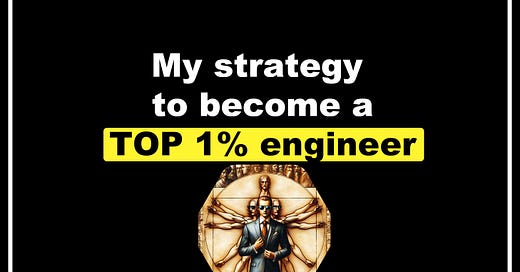How do you become an outlier?
Doing things other people don’t.
You don’t need to come up with big innovations.
It’s about having positive side effects on anything you do. Midas’ golden touch.
It’s about under-promising and over-delivering.
We all have a promise of expectations based on our role and level.
Let’s audit our work as engineers to find opportunities to over-deliver.
⭐ In this post, you’ll learn:
How to make an impact when writing code and documents
How to improve your team’s life when being on-call
How to turn meetings into a fun game (at least for yourself)
How to earn trust by over-communicating
👨💻 Writing code
Apply the boy-scout rule: Leave it better than you found it.
Refactor, add tests to untested functionality and contribute to the readme.
This is not about doing work outside of your scope.
But about improving the files files you have to modify them.
📝 Writing documents
Doesn’t matter if it’s a te…
Keep reading with a 7-day free trial
Subscribe to Strategize Your Career to keep reading this post and get 7 days of free access to the full post archives.



